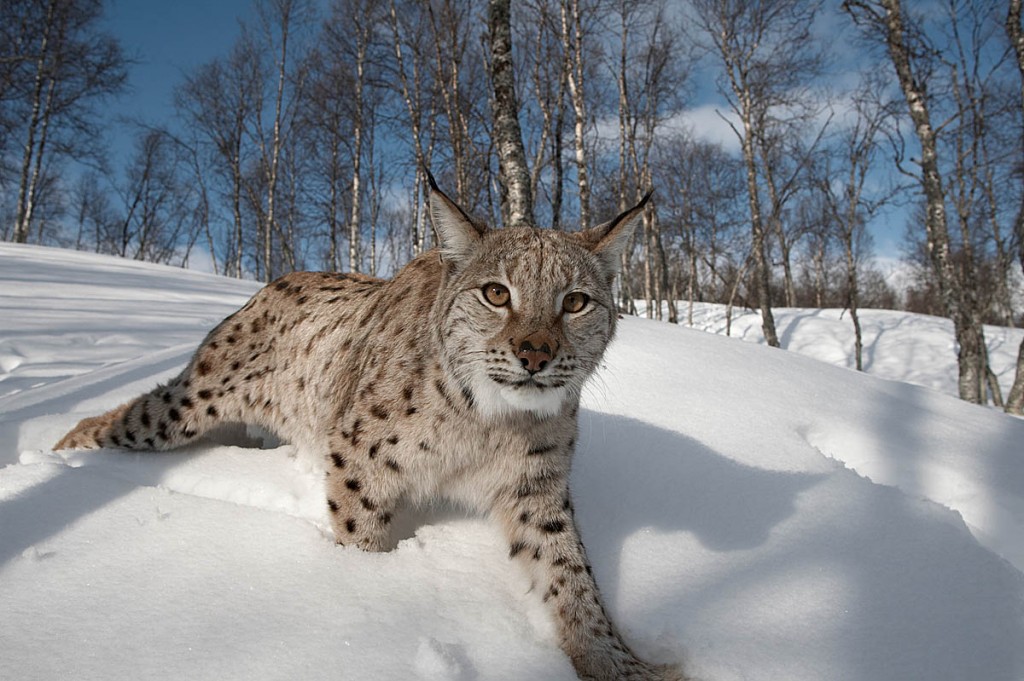Three rewilding charities are launching a joint year-long study into the possible reintroduction of a big-cat species north of the border.
The organisations said Lynx to Scotland will be an impartial assessment of public attitudes releasing Eurasian lynx into the Highlands.
They stressed their study was unconnected to any other plans for reintroduction of the predator, which they said became extinct in Britain between 500 and 1,000 years ago because of hunting and loss of habitat.
A partnership of Scotland: The Big Picture, Trees for Life and Vincent Wildlife Trust is behind the study. The charities said: “Ecological research has shown that extensive areas of Scotland could support lynx, but the charities say returning the shy and elusive animal is less about science and more about people’s willingness to live alongside a species that’s become forgotten on these shores.
“The year-long Lynx to Scotland consultation will impartially and accurately assess public and stakeholder attitudes around the idea of lynx reintroduction, including in rural communities.”
They said lynx are now expanding in range and numbers across mainland Europe as hunting laws are enforced and public attitudes to large predators soften. The partnership said several successful lynx reintroductions since the 1970s have brought ecological and environmental benefits to countries more densely populated than Scotland, and in areas used for farming, hunting, forestry and tourism.
“As a shy and solitary woodland hunter, lynx are rarely glimpsed and attacks on humans are virtually unknown,” the groups said. “Research suggests the Highlands has sufficient habitat – and more than enough roe deer, the cat’s preferred prey – to support around 400 wild lynx.”
Jenny MacPherson, science and research programme manager with the Vincent Wildlife Trust, which will lead the study, said: “Reintroducing lynx would inevitably bring challenges.
“Lynx to Scotland will actively include stakeholders representing the full range of perspectives, to produce meaningful conclusions about the level of support or tolerance for lynx, and therefore the likely success of any future reintroduction.”
The Eurasian lynx preys mostly on roe deer where there are populations, but also feeds on red deer and smaller mammals, foxes, wild boar and grouse.
Peter Cairns, executive director of Scotland: The Big Picture, said: “With a global biodiversity crisis, we have a responsibility to have open and constructive conversations around restoring key native species to the Scottish landscape – and science shows that apex predators like lynx play a vital ecological role in maintaining healthy living systems.”
Funding for the year-long project is being provided by Wildland, owned by Danish billionaire Anders Povlsen and which owns three Scottish estates; the Lund Trust, run by Lisbet Rausing and Peter Baldwin; and the Jeremy Coller Foundation, founded by its eponymous entrepreneur and philanthropist.
Steve Micklewright, chief executive of Trees for Life, said: “Scotland has more woodland deer than any other European country, and their relentless browsing often prevents the expansion and healthy regeneration of our natural woodlands.
“By preying on roe deer, lynx would restore ecological processes that have been missing for centuries, and provide a free and efficient deer management service.”
More details of the study are on the Scotland: The Big Picture website.

Jock
20 January 2021Are you sure they aren't on a mission to get rich by flogging deodorant?
Ian512
25 January 2021" . . . restoring a key native species . . . " which was lost between 500 and 1000 years ago.
How far back should we go with reintroductions?
AdamBrook
26 January 2021There are very good reasons why lynx, wolves, bears and similar aggressive animals were eliminated in the first place. This is just another barmy scheme set in place by people who should, but don't, know better.
Captain Hook
29 January 2021Three organisations, a year long study? I think two minutes is quite sufficient to conclude that this is insanity.
Doddy
03 February 2021Great benefits to be had with rewilding.
jo
10 February 2021That would be lovely but they will just end up getting shot by trigger happy "trophy hunters" so best not.